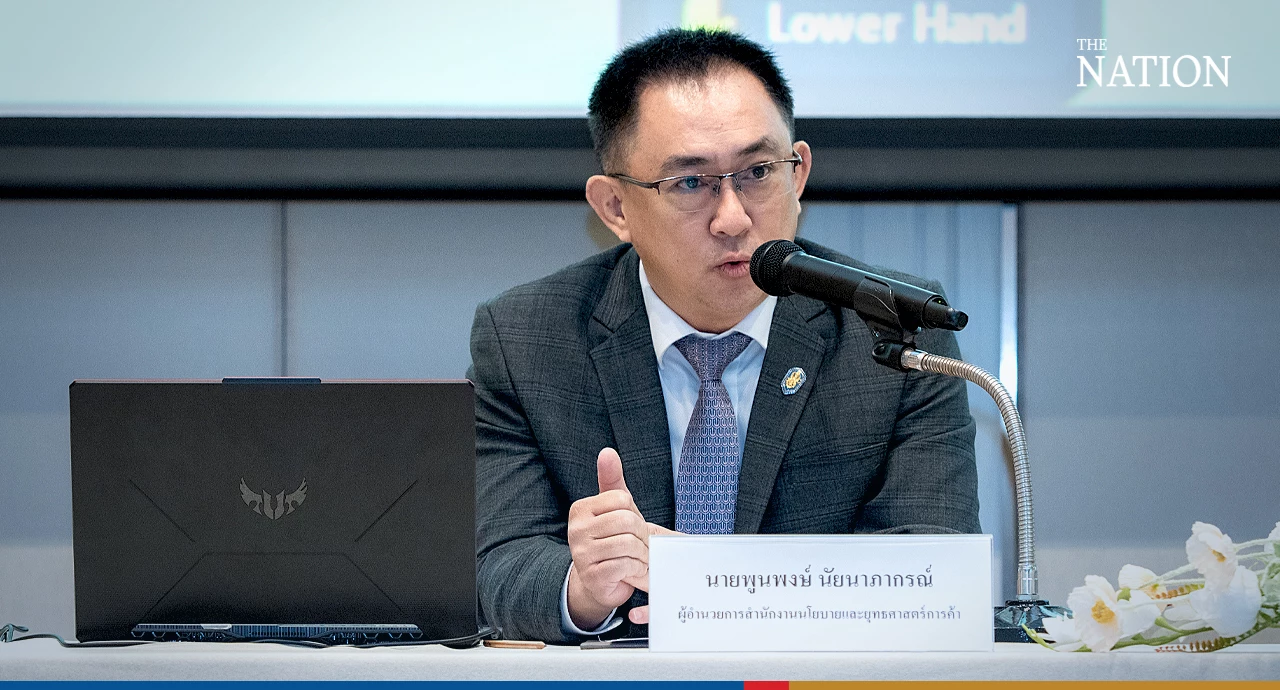
The ongoing trade war between the United States and China is having broad global ramifications, including for Thailand, a senior official said last week.
Poonpong Naiyanapakorn, director-general of the Trade Policy and Strategy Office (TPSO), was speaking at a seminar to disseminate the findings of the study entitled "Decoupling Study of Key Industries between the United States and China and its Implications for Thailand's Trade Economy”.
Private sector representatives from the Thai Chamber of Commerce in China, the Thai Shipper's Council, and VISUP Co Ltd participated in the seminar on July 19 at the Eastin Grand Hotel Phya Thai in Bangkok, in collaboration with Thammasat University.
Poonpong said that a critical turning point in the trade war and the subsequent decoupling emerged when the US passed the Chip and Science Act 2022, offering substantial incentives to promote the domestic semiconductor industry, and the Inflation Reduction Act 2022 to boost the automotive industry.
These policies have had significant spillover effects on various economies, including those seeking to attract investments and retain capital, particularly those with chip manufacturing, an essential component in almost every product. The attempts at decoupling have far-reaching consequences for global production, trade, and investment structures.

Thailand needs to closely monitor, assess, and prepare a strategy to maximise the benefits from these developments, Poonpong said.
The study's results indicate that the decoupling had led to a decrease in the mutual roles of the United States and China as trading partners, particularly evident in China's reduced market share in the US. This, in turn, has prompted the United States to increase imports from Thailand and Vietnam during the period 2021–2025, especially of products such as air-conditioners, cameras, hard disc drives, light-emitting diodes, circuits, electronics, and automotive components. However, Thailand's market share in China has only grown slowly, lagging behind Vietnam and Malaysia, Poonpong said.

Furthermore, Thailand has received incentives from the relocation of production bases from China, particularly in the electrical and electronic appliances sector. Simultaneously, Chinese investments in the automotive sector in Thailand have increased, primarily focused on automotive components and rubber tyres, he added.
A detailed analysis of international investment patterns revealed that many companies have been hesitant to invest in China, especially in critical semiconductor industries, amid the ongoing decoupling. Nonetheless, some investment activities, especially those concerning electronic components, have yet to see significant changes as China has established strong bonds with partners, Poonpong said. On the other hand, non-electronic suppliers in China are attempting to enter other markets to replace the US market.
Poonpong emphasised that Thailand must be well-prepared to increase production capacity, particularly in terms of labour readiness, to seize the opportunities arising from the decoupling. This preparation should include short-term and long-term plans.
Moreover, it is crucial to improve the efficiency of attracting foreign investment, particularly by simplifying regulations and adopting new strategies beyond investment privileges, including efforts to attract skilled experts to work in the country, he said.
"Ultimately, maintaining a clear competitive advantage driven by well-designed policies that align with the country's potential is crucial for sustainable development in the long run," said Poonpong.


